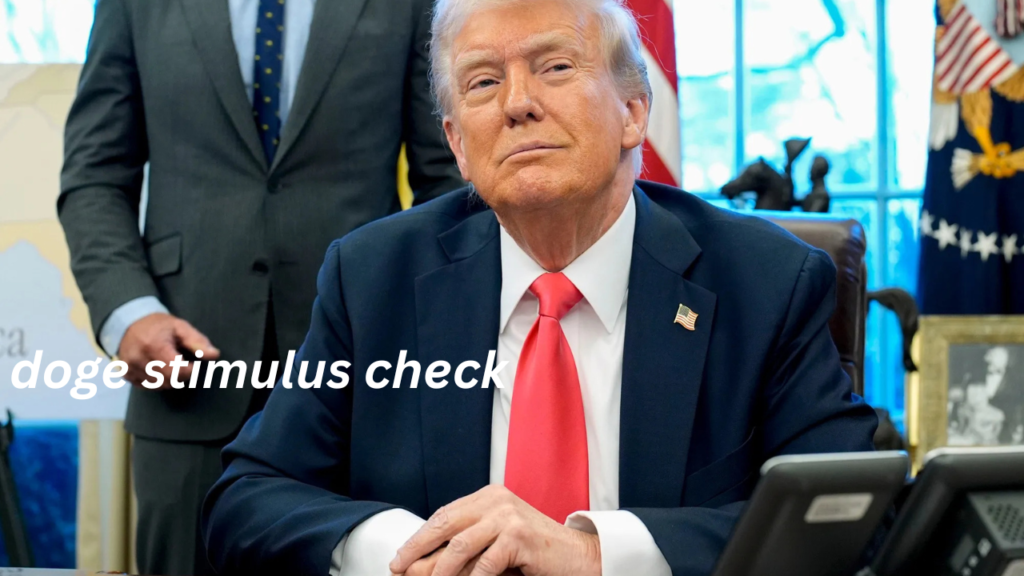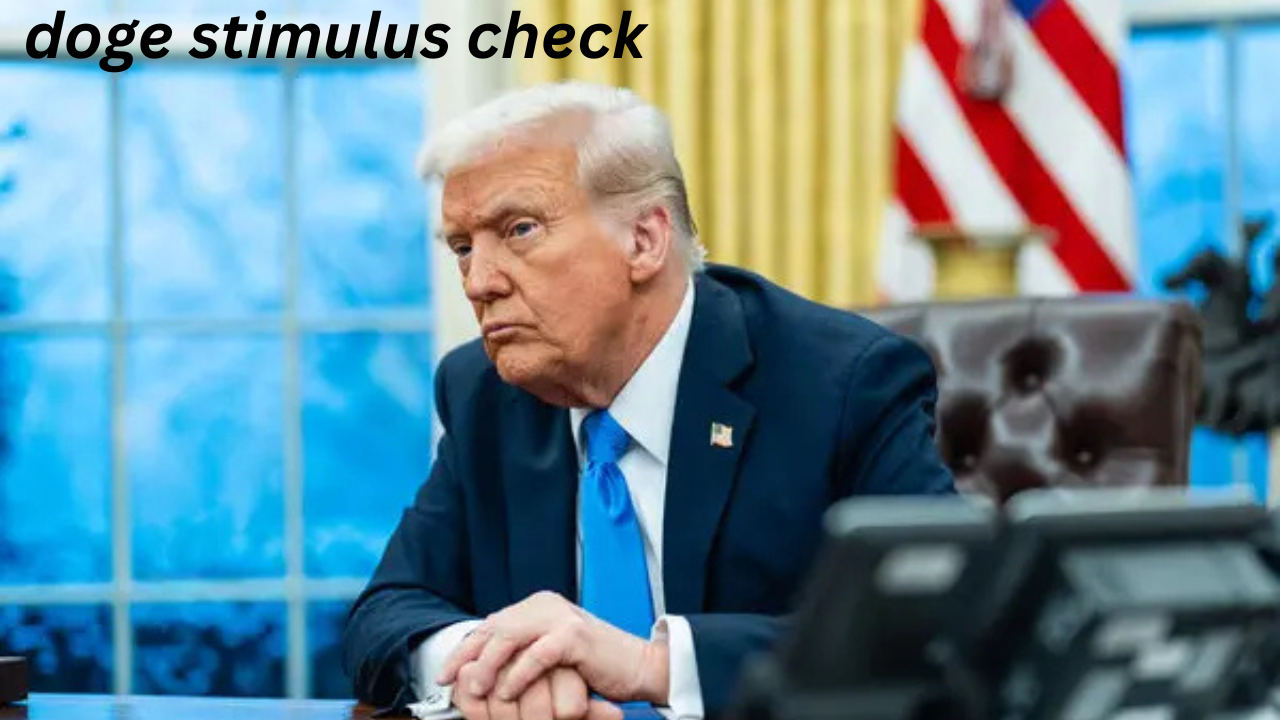doge stimulus checkIn a world where memes influence markets and internet culture shapes financial narratives, the concept of a “Doge Stimulus Check” has captured the imagination of crypto enthusiasts and meme lovers alike. While traditional stimulus checks are government-issued payments meant to provide economic relief during downturns, the Doge Stimulus Check is something entirely different—an internet-born idea that blends humor, hope, and cryptocurrency.
At first glance, the notion might seem satirical, a parody of pandemic-era relief payments infused with the spirit of Dogecoin. However, beneath the humor lies a curious and compelling conversation: What happens when decentralized currencies like Dogecoin intersect with the need for grassroots economic empowerment? Could the very memes that entertain us also drive serious financial innovation?
This article dives deep into the origins of the Doge Stimulus Check, the viral momentum it gained online, its cultural significance, and the feasibility of such a concept. Whether you’re a seasoned crypto investor or just a curious onlooker, this exploration offers insight into how a meme coin once created as a joke is now part of larger discussions on wealth distribution, internet influence, and economic satire.
Understanding the Origins: What Is a Doge Stimulus Check
The Doge Stimulus Check isn’t a traditional financial tool—it’s a cultural phenomenon. Born from the intersection of humor and digital finance, the phrase refers to a mock version of government-issued stimulus payments, but distributed in Dogecoin, the internet’s favorite meme cryptocurrency. This satirical concept gained traction online, where crypto communities often use humor to address serious financial themes.
The term first began trending during the height of pandemic stimulus debates. Social media users, particularly on platforms like Twitter and Reddit, jokingly suggested that instead of fiat currency, people should receive stimulus checks in Dogecoin. The idea struck a chord, resonating with younger audiences frustrated with traditional economic systems and inspired by the possibility of decentralized finance (DeFi).
Behind the meme is a clever critique of centralized economics and fiat-based relief. The Doge Stimulus Check reflects a desire for alternatives that are transparent, borderless, and community-driven. It underscores how internet-native currencies could, in theory, be mobilized to support individuals in times of financial need—if not through official channels, then through crowd-sourced initiatives.
More than just a meme, the Doge Stimulus Check is a symbol of how humor and grassroots movements can give rise to powerful discussions about the future of finance.
Dogecoin From Joke to Juggernaut
Dogecoin was launched in 2013 by software engineers Billy Markus and Jackson Palmer as a satirical take on the sudden rise of altcoins. Based on the Shiba Inu dog meme that had already gone viral, Dogecoin was never intended to be a serious financial asset. However, its community-oriented design, fun branding, and accessibility quickly gained a cult following.
Dogecoin’s journey from internet joke to legitimate cryptocurrency is one of the most unique in the crypto space. Its low transaction fees, inflationary model, and passionate user base made it ideal for tipping content creators and supporting charitable causes. Early Dogecoin communities helped fund the Jamaican bobsled team’s trip to the Sochi Olympics and raised money for clean water initiatives in Kenya.
What truly catapulted Dogecoin into mainstream consciousness was the endorsement of celebrities like Elon Musk. Musk’s tweets and public statements turned Dogecoin into a speculative asset, sending its price skyrocketing and inviting both excitement and skepticism. Despite market volatility, the Doge Army remained loyal, treating the coin as both a social statement and a financial experiment.
Dogecoin’s community spirit laid the groundwork for concepts like the Doge Stimulus Check. It wasn’t just about price speculation—it was about belonging to a movement. The idea that a meme coin could empower real people financially speaks volumes about the changing landscape of money and trust in digital economies.
Fantasy vs. Reality Is a Doge Stimulus Check Feasible

While the Doge Stimulus Check is mostly symbolic, the question of whether such an initiative could work in practice is worth exploring. Technically, cryptocurrency airdrops and donations have long been used to distribute funds to individuals. Projects like Worldcoin, Gitcoin Grants, and crypto-based Universal Basic Income (UBI) experiments show that digital assets can be leveraged for social good.
However, there are substantial hurdles. First, there’s the issue of volatility. Dogecoin’s price swings make it unreliable as a stable form of economic relief. One day’s generous stimulus could be worth half the next day. Then there’s the matter of access. Not everyone has a digital wallet or understands how to use crypto safely, which can limit adoption.
Regulatory concerns also loom large. Governments may view mass Dogecoin distributions as unregulated financial schemes, leading to scrutiny or even bans. And from an ethical standpoint, incentivizing people with meme coins raises questions about financial literacy and risk.
That said, the idea of a decentralized stimulus isn’t entirely far-fetched. Crowdfunded initiatives and DAOs (Decentralized Autonomous Organizations) have the power to pool resources and distribute aid globally. If the Doge community organized effectively, a grassroots stimulus could be possible—though it would likely remain symbolic rather than systemic.
Ultimately, the Doge Stimulus Check may not be a practical solution for economic relief, but it serves as a powerful thought experiment, challenging us to rethink how financial aid could evolve in a digital age.
How the Doge Stimulus Check Went Viral
The Doge Stimulus Check gained traction through meme culture, where humor meets virality. Platforms like Twitter, Reddit (especially r/dogecoin), TikTok, and Discord were instrumental in spreading the concept. A few well-timed tweets, screenshots of Dogecoin wallets with “stimulus” notes, and viral memes made the idea explode in popularity.
The momentum was fueled by a perfect storm: economic uncertainty, rising inflation, growing distrust in centralized institutions, and a thriving meme economy. Social media influencers and content creators began posting about hypothetical Doge stimulus distributions, even sharing wallet addresses and encouraging mutual tipping among community members.
Elon Musk’s ongoing love affair with Dogecoin further amplified the trend. His cryptic tweets and memes about “Doge to the Moon” lent legitimacy—even if unintended—to the idea that Dogecoin could be a tool for widespread financial empowerment. Media outlets quickly picked up the trend, giving it even more exposure.
In many ways, the virality of the Doge Stimulus Check mirrors the rise of other meme-driven movements, such as GameStop’s stock surge via WallStreetBets. It’s a testament to the internet’s power to shape financial narratives, even if the actual economics behind them remain tongue-in-cheek.
Conclusion
The Doge Stimulus Check is more than a meme—it’s a reflection of the digital age’s most pressing financial questions. As centralized systems face scrutiny and meme culture continues to influence real-world events, concepts like this challenge traditional paradigms. Dogecoin, once a joke, now sits at the heart of a cultural and financial revolution.
While a real Doge Stimulus Check may never materialize in any official form, its symbolism resonates deeply. It represents hope, humor, and a desire for a financial future that’s more inclusive, decentralized, and fun. In the end, the Doge Stimulus Check might not change your bank account, but it might just change the way you think about money.
FAQs
Q1: Is the Doge Stimulus Check a real government initiative?
No, the Doge Stimulus Check is a meme-based concept and not affiliated with any government program.
Q2: Who started the Doge Stimulus Check meme?
The origin is unclear, but it gained popularity through Reddit and Twitter during pandemic-era economic debates.
Q3: Has anyone actually received money from a Doge Stimulus Check campaign?
Some community-driven giveaways and tipping events occurred, but nothing on a mass scale.
Q4: Can cryptocurrencies be used for real stimulus programs?
Technically yes, but volatility, regulation, and infrastructure challenges remain.
Q5: What role did Elon Musk play in promoting Dogecoin and similar ideas?
Elon Musk’s tweets and public endorsements significantly boosted Dogecoin’s popularity and inspired meme-driven ideas like the Doge Stimulus Check.
You May Also Read: https://ventsworlds.com/cement-mixer-shot/

